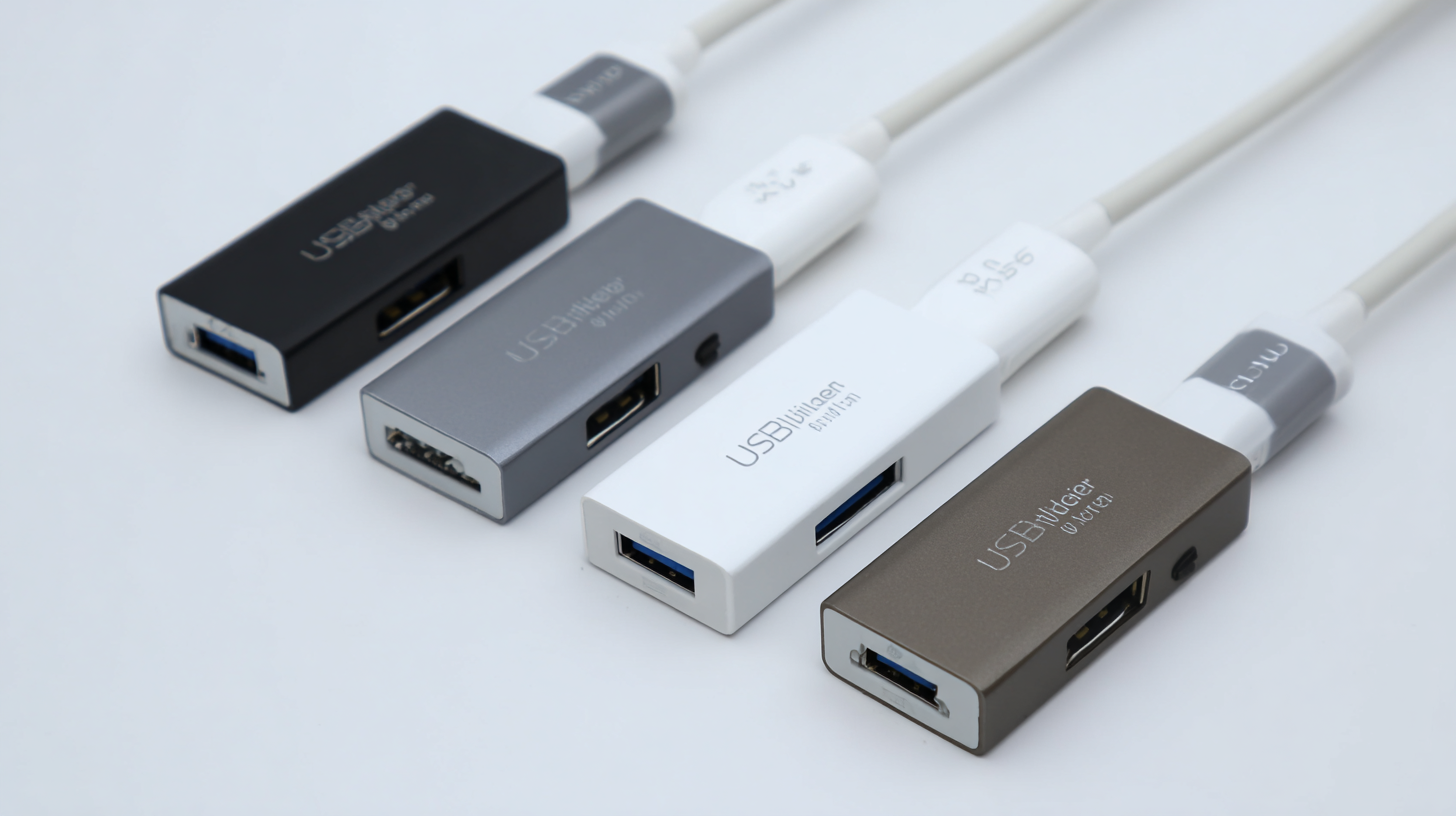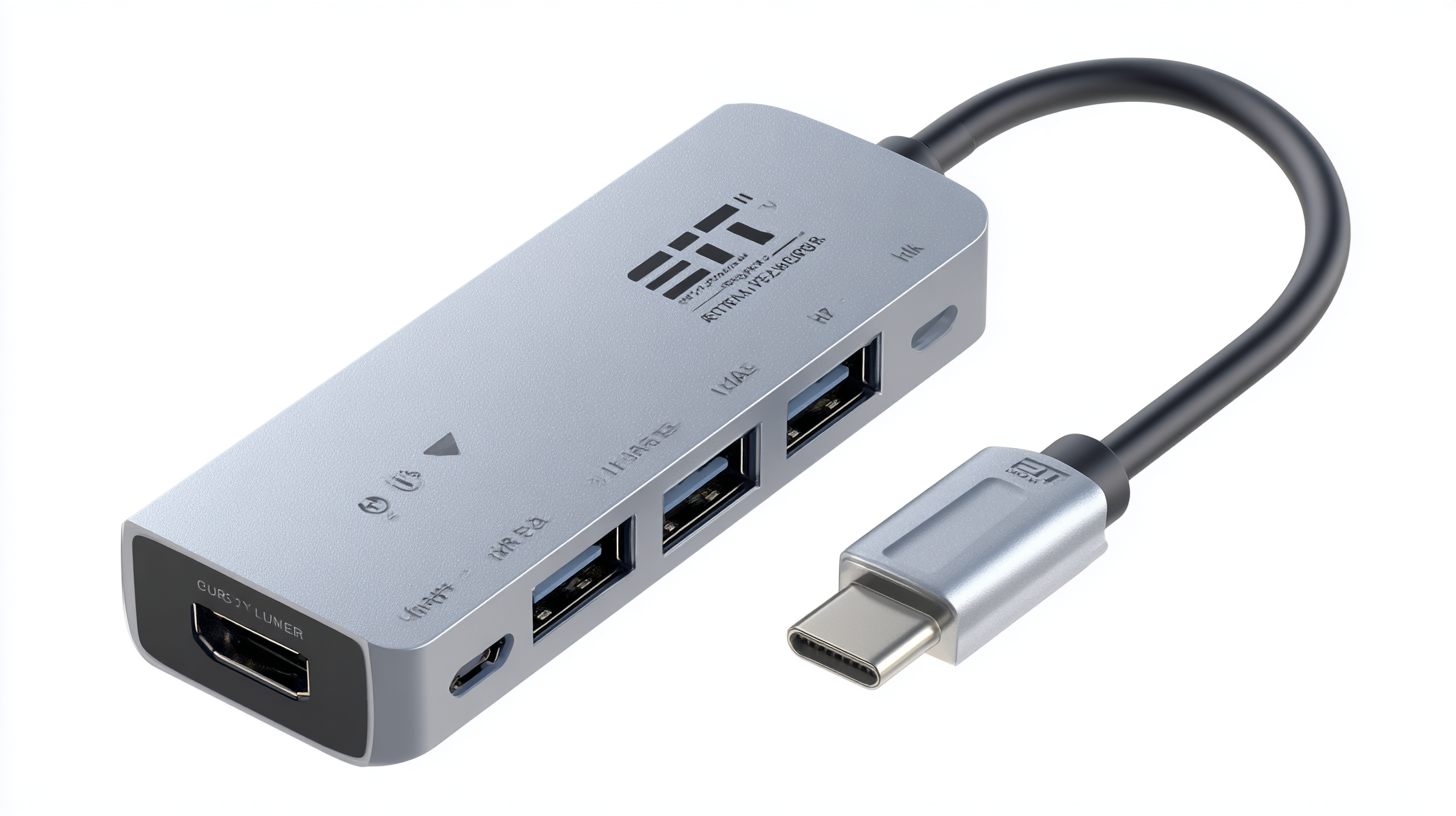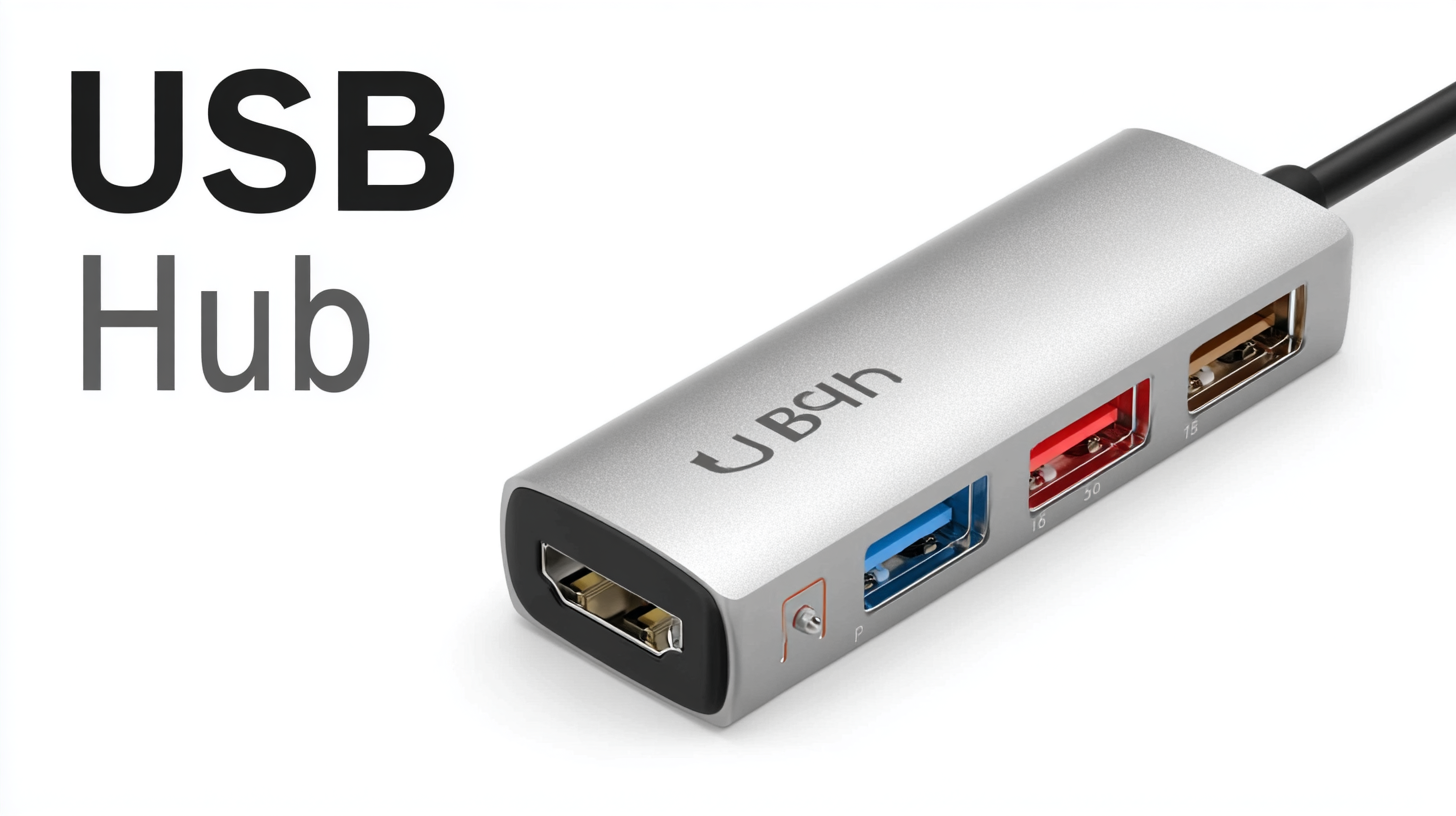
-
Home
-
Products
-
About Us
-
OEM&ODM
-
News
-
Contact Us
Inquiry
Form loading...

In today's fast-paced digital landscape, the demand for high-quality connectivity solutions is on the rise, making the Usb Hub Ethernet Adapter an essential tool for consumers and professionals alike. According to recent market reports, the global USB hub market is projected to reach USD 5.5 billion by 2026, driven by the increasing need for reliable internet connections and the surge in remote work practices.

As organizations and individuals seek to optimize their network setups, understanding the key features of USB Hub Ethernet Adapters becomes paramount. This guide aims to provide global buyers with critical insights into the unique specifications, compliance certifications, and top models available in the industry, ensuring informed purchasing decisions that cater to diverse connectivity needs.
In today's digital landscape, USB hub Ethernet adapters have become essential tools for global users seeking reliable internet connectivity and device management. These adapters not only expand the number of USB ports available on a laptop or desktop but also provide robust wired network access, which is crucial for users in areas with unstable Wi-Fi. By seamlessly connecting multiple devices, such as printers, external drives, and other peripherals, these adapters enhance productivity and ensure that users can maintain a stable internet connection during critical tasks.
When selecting a USB hub Ethernet adapter, users should consider several key features. Look for models that support high-speed data transfer rates and multiple USB ports to accommodate various devices. Compatibility with different operating systems is also critical; ensure that the adapter meets the specific requirements of your devices. Additionally, check for built-in safety features, such as surge protection, to safeguard your equipment.
Tip: Always read user reviews to gauge the performance and reliability of the adapters you are considering. Opt for adapters from reputable brands that offer a warranty—this can provide peace of mind in case of any issues. Additionally, if you frequently travel, consider a compact model that is easy to carry without compromising on functionality.
When selecting a USB hub Ethernet adapter, buyers should prioritize several key features to ensure optimal performance. One essential aspect is the adapter's data transfer speed. According to a recent market analysis by IDC, high-speed adapters can deliver data rates of up to 1000 Mbps, which are crucial for tasks that involve heavy bandwidth, such as online gaming or 4K streaming. Thus, investing in a USB hub that supports USB 3.0 or USB-C standards can significantly enhance connectivity, allowing faster data exchange compared to older versions.
Another crucial feature to consider is compatibility. A study published by Statista indicates that nearly 60% of consumers are likely to change their devices frequently, necessitating versatile adapters that work across multiple operating systems, including Windows, macOS, and Linux. Furthermore, the inclusion of additional ports is also vital; adapters with extra USB ports allow for the connection of multiple devices simultaneously, which can streamline workflows for professionals and enthusiasts alike. Ultimately, evaluating these key characteristics will lead to more informed purchasing decisions for global buyers seeking reliable USB hub Ethernet solutions.
| Feature | Importance | Considerations |
|---|---|---|
| Ethernet Speed | High | Look for adapters that support at least Gigabit Ethernet (1000 Mbps). |
| USB Version | Medium | Choose USB 3.0 or higher for faster data transfer rates. |
| Number of Ports | Medium | Consider how many devices you need to connect simultaneously. |
| Power Delivery | High | Look for adapters that support power delivery to charge devices. |
| Compatibility | High | Ensure the adapter is compatible with your operating system. |
| Size and Portability | Medium | Consider a compact design for easier travel. |
| Warranty | Medium | Look for a good warranty for customer support and peace of mind. |
When selecting a USB hub Ethernet adapter, it's essential to consider the varying features offered by leading brands in the market. Recent market analyses indicate that the demand for versatile USB-C hubs, which seamlessly integrate additional ports for HDMI, Ethernet, and traditional USB connections, has surged. The latest evaluations reveal that a well-designed hub can add up to 13 connectors to your laptop, greatly enhancing productivity and connectivity options.
Several USB hub Ethernet adapters have stood out in comparative tests for their performance and reliability. Comprehensive testing shows that the optimal devices not only incorporate high-speed USB 3.0 and USB-C ports but also deliver robust Ethernet connectivity that meets the standards set for extensive data transfer. Furthermore, user feedback indicates that the size, durability, and heat dissipation of these adapters are significant factors influencing purchasing decisions, with compact designs achieving higher user satisfaction ratings. Overall, the choice of an adapter should align with both current technological needs and future scalability.
When selecting a USB hub Ethernet adapter, understanding industry standards and certifications is crucial for ensuring product reliability and performance. Key certifications to consider include
USB-IF (USB Implementers Forum) certification, which guarantees compatibility with USB specifications and provides assurance of quality.
Ensuring that a device is USB-C compliant is also essential, as it facilitates quicker data transfer rates and supports power delivery features that enhance overall functionality.
Furthermore, look for adapters that meet IEEE standards, particularly those related to Ethernet networking like IEEE 802.3. This certification ensures that the adapter supports efficient data transmission over networks while adhering to safety standards. Additionally,
consider devices that are compliant with RoHS (Restriction of Hazardous Substances) regulations, which guarantees that the product is free from harmful materials, contributing to a safer environment.
By prioritizing these standards and certifications, global buyers can make informed decisions, ensuring they invest in reliable and high-quality USB hub Ethernet adapters.

User reviews play a crucial role in the purchasing decision for USB hub Ethernet adapters, providing insights that go beyond technical specifications. According to a recent report by MarketsandMarkets, the global USB hub market is projected to grow at a CAGR of 6.1% from 2022 to 2027, highlighting the increasing demand for multifunctional devices. Buyers often share their experiences regarding connectivity stability and data transfer speeds, essential features that significantly impact user satisfaction. A commonly reported advantage is the ability of these adapters to enhance internet speeds through wired connections, providing a more reliable alternative to Wi-Fi.
Moreover, user feedback often emphasizes the importance of build quality and compatibility. A product review aggregator revealed that 85% of users prioritize devices compatible with multiple operating systems, ensuring seamless integration into their existing setups. Many consumers express frustration with adapters that fall short in durability or offer inconsistent performance, prompting a trend towards well-reviewed brands. Overall, understanding user insights and reviews can guide potential buyers in selecting a USB hub Ethernet adapter that meets their specific needs while ensuring longevity and reliability.
